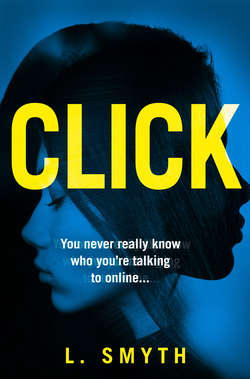Читать книгу Click - L. Smyth - Страница 16
ii.
ОглавлениеThere were a lot of things I forgot to ask Marina, now I think about it. The questions I did put to her were always beside the point somehow – too vague or too specific to elucidate what she was ever really thinking. I wish I’d fastened onto some of the other leads instead. I wish I’d asked where she was on certain days; how certain things made her feel. But there’s no use in regretting all that. I don’t know how much I can trust of what she told me anyway.
The conversational pattern of our friendship was this: I asked her questions about herself; she asked me questions about grand ideas. I’d say: ‘What was your mother like?’ and she’d reply, e.g.: ‘Do you think that life is a simulation?’ I got the impression that she only ever asked me questions so that she could answer them herself. If I gave a response that she disagreed with, which was rare, she’d brush it off and complain that I didn’t understand. She’d say that I didn’t ‘speak her language’.
Marina was opinionated. Her thoughts were hard-boiled, polished facts with no room for negotiation. I, on the other hand, had only a clutch of half-baked conclusions. I understood ideas, but I had no clue about how to settle on one at any given time – how you might say that something was more true than something else and actually mean it. My thoughts lay in my head in a series of unconnected fragments – like shattered glass – and I couldn’t piece them together to see what the original construction had looked like.
Sometimes I pretended this disconnect didn’t matter, but I knew it did. I didn’t want relativism. I wanted to find a definitive interpretation for everything.
When it came to writing my own essays, my conclusions would always say something admiring about the ‘unreadability of the text’, as though being confusing were a badge of literary merit. I would explain various theories and then wind up making a non-committal comment like: ‘Milton holds up a mirror to the reader’. I knew this was probably a cop out, the verbal equivalent of knowingly tapping the side of my nose – but expressing my ignorance was the closest I could come to saying something true.
Once I asked Marina what she thought of that line about Milton.
‘Unhelpful,’ she said. ‘Irresponsible, in fact.’
I agreed that it would be better to think of an actual argument – but what?
‘Paradise Lost is about someone struggling to come to terms with their sexuality in an oppressively homophobic environment,’ she added bluntly. ‘Lucifer rejects the heteronormative values pressed upon him by society – aka God, embodied by Adam and Eve – and is subsequently dealt the punishment of expulsion. He has to go and face his demons.’
‘Literally demons,’ I said.
‘Then he starts complaining about the decor of hell and saying stuff like: “Better to reign in hell than serve in heaven.” It’s obvious – high camp. Put that.’
Her argument was always a bit off, but I found her conviction refreshing. The fact that she had so much confidence meant she could speak freely about any number of topics. She didn’t get tangled up in questions of political correctness or historical accuracy, as I did – she just charged on. And even if I wasn’t always sure that what she said was appropriate, or (when you unpacked it) made sense, there was something comforting about being close to someone who scoffed at the very notion of self-doubt. It made me believe that I, too, would one day have an opinion about something.
Looking back now, I think it was this self-conviction which caused Marina to be disliked by other people at Northam. There was something cold and uncompromising about her. It put them off, especially other girls.
Did Marina notice this? I think so. Did she mind? Unclear. She had a way of speaking to people that indicated she found them tedious, yes – but at the same time she always seemed to be seeking them out. When we went out to clubs or bars, she would always make some excuse to introduce herself to strangers. She would saunter over and ask for a lighter, or hang next to them with a sultry, bored expression on her face, waiting for a moment to sarcastically chip into their conversations.
I was so convinced by her self-confidence back then that I didn’t consider that this might be a sign of loneliness. In fact, I interpreted it as a personal insult. Her behaviour made me suspicious, paranoid even, like she was looking for an opportunity to get away from me.
